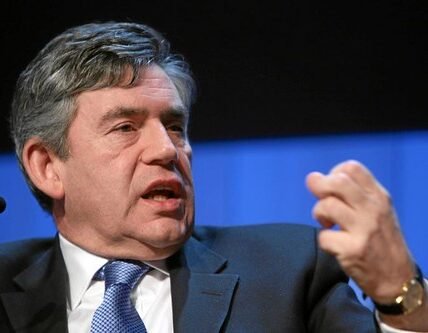In a stunning revelation from Walter Isaacson’s latest biography on Elon Musk, the tech mogul’s tumultuous journey at the helm of PayPal has come to light. Musk, who would later become a household name for his ventures in Tesla, SpaceX, and more, faced a rather abrupt departure from PayPal over two decades ago. This unexpected turn of events was orchestrated by a group known as the “PayPal Mafia.”
Turbulence at the Top
Musk’s rise to the position of CEO at PayPal was a result of the merger between his online bank, X.com, and Confinity, which led to the formation of PayPal. However, the honeymoon phase for Musk’s leadership did not last long. Disputes over the company’s direction post-merger began to take a toll on his relationships with colleagues in the summer of 2000. Walter Isaacson’s book, aptly titled “Elon Musk,” delves into these early days.
Discord and Dissension
Musk’s primary concern revolved around the threat of fraud that loomed over PayPal’s peer-to-peer payment services. He showed little enthusiasm for Max Levchin’s CAPTCHA tool, designed to thwart automated bots and combat fraud. Tensions escalated as Levchin confided his frustrations to like-minded colleagues who shared concerns about Musk’s leadership style.
The Coup Begins
A brewing coup against Musk gained momentum when those disgruntled colleagues decided to take matters into their own hands. They secretly conducted a study that revealed the greater value of PayPal’s brand over X.com’s. This revelation infuriated Musk, who attempted to remove PayPal’s branding from their website, further escalating the conflict.
Allies in the Shadows
The dissenting faction gained powerful allies in their quest for change. Investor Peter Thiel, board member Reid Hoffman, and product chief David Sachs joined forces with Levchin’s group in September 2000. It was during this crucial juncture that Musk decided to take a honeymoon vacation with his first wife, Justine, albeit one that had been delayed due to his work commitments.
A Temporary Change in Leadership
In Musk’s absence, Levchin proposed that Thiel temporarily assume the role of CEO. Thiel accepted, and with this move, the corporate insurgents managed to secure the backing of the company’s board of directors. Their decisive meeting took place at Sequoia Capital’s headquarters in Silicon Valley.
A Shocking Revelation
While vacationing in Australia, Musk started sensing an unsettling shift. The PayPal team began pushing back against his decisions more vigorously than he had ever experienced. However, it wasn’t until he received an email from an employee supporting his continued leadership that the coup was exposed.
Musk’s Swift Downfall
Despite cutting short his honeymoon to return to the Bay Area and salvage his position, Musk’s efforts proved futile. The board had made up its mind, voting to remove him as CEO. Musk, reflecting on this turbulent period, confessed to Isaacson that he had initially harbored thoughts of revenge but later realized that his ousting may have been a blessing in disguise.
Life After PayPal
Following his exit from PayPal, Musk embarked on a vacation that included a visit to his homeland, South Africa, for the first time in over a decade. However, upon his return to California in January 2001, Musk faced a health crisis. Initially diagnosed with a form of meningitis, his condition deteriorated rapidly, ultimately leading to a diagnosis of falciparum malaria, a life-threatening tropical disease that landed him in intensive care.
A Lucky Turn of Events
As Musk fought for his life, it was revealed that he had taken out a “key-man” life insurance policy worth $100 million, with the company as the beneficiary. Peter Thiel admitted that had Musk succumbed to his illness, it would have resolved all of their financial problems. Fortunately, Musk survived, and the company continued its journey.
Musk’s Enduring Success
After his departure from PayPal, Elon Musk’s journey took a different trajectory. He received a significant payout when PayPal went public in 2002 and was later acquired by eBay. This provided the financial backing he needed to become Tesla’s largest shareholder in 2004 and eventually take the helm as CEO in 2008. From there, he ventured into SpaceX, Neuralink, and even Twitter, making him the wealthiest person in the world.
The Legacy of the “PayPal Mafia”
While Musk stands out as the most prominent figure, other members of the “PayPal Mafia” have also achieved substantial success as entrepreneurs and investors, albeit on a smaller scale. Peter Thiel founded Palantir Technologies, Max Levchin launched multiple startups, Reid Hoffman co-founded LinkedIn, and David Sachs dabbled in startups and venture funding. Their stories are a testament to the enduring spirit of innovation that defines Silicon Valley.
In a tale of corporate intrigue and resilience, Elon Musk’s journey through the PayPal era offers a unique glimpse into the trials and tribulations that paved the way for his later triumphs on a global scale.
Download our app MadbuMax on the Apple App Store for the latest news and financial tools. Interested in getting your finances in order do not forget to check Dr. Paul Etienne’s best-seller book on personal finance. To access more resources, tools, and services please click here. Also, do not forget to follow Dr. Etienne on IG or Twitter.





